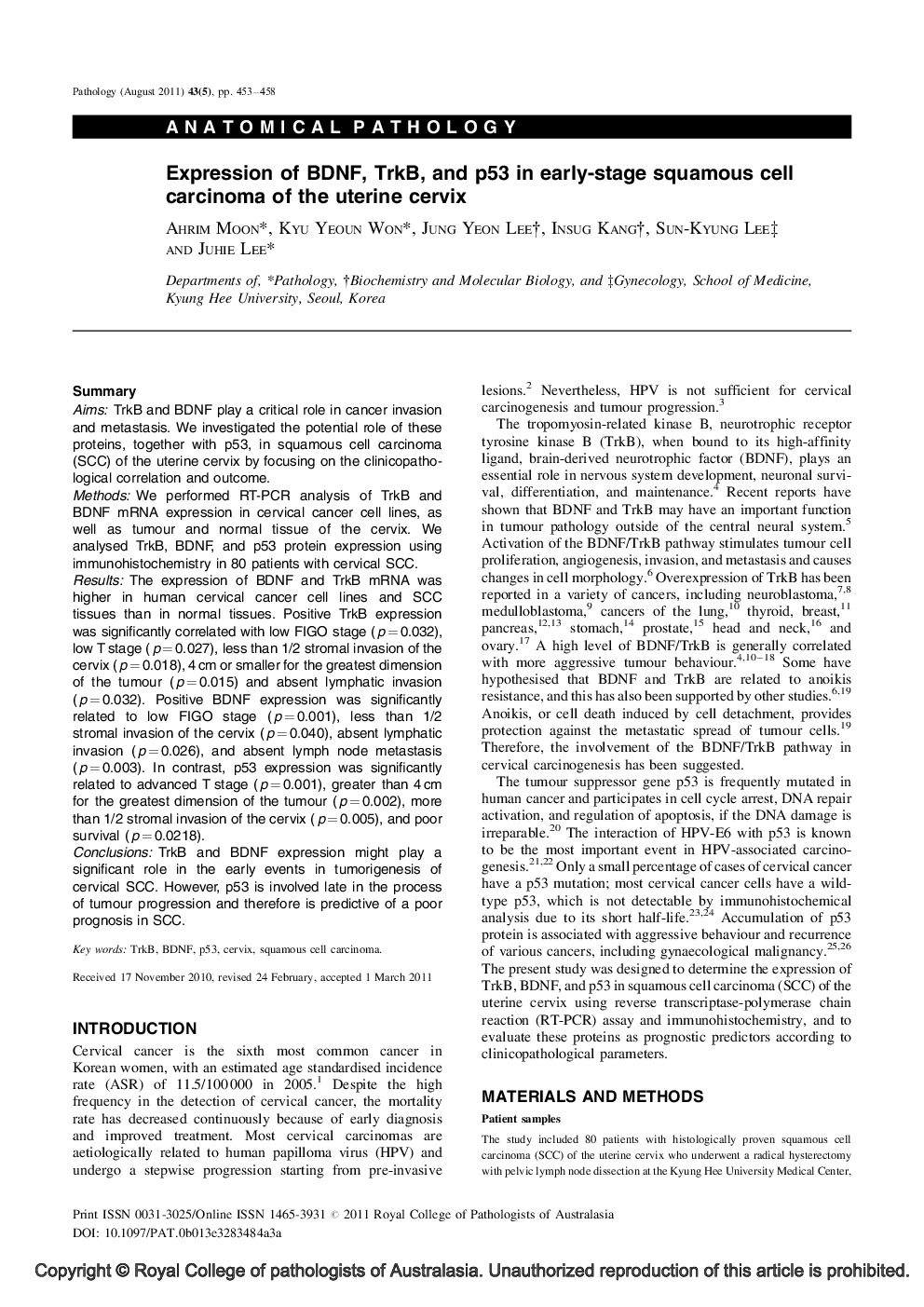| Article ID | Journal | Published Year | Pages | File Type |
|---|---|---|---|---|
| 105169 | Pathology | 2011 | 6 Pages |
SummaryAimsTrkB and BDNF play a critical role in cancer invasion and metastasis. We investigated the potential role of these proteins, together with p53, in squamous cell carcinoma (SCC) of the uterine cervix by focusing on the clinicopathological correlation and outcome.MethodsWe performed RT-PCR analysis of TrkB and BDNF mRNA expression in cervical cancer cell lines, as well as tumour and normal tissue of the cervix. We analysed TrkB, BDNF, and p53 protein expression using immunohistochemistry in 80 patients with cervical SCC.ResultsTHE expression of BDNF and TrkB mRNA was higher in human cervical cancer cell lines and SCC tissues than in normal tissues. Positive TrkB expression was significantly correlated with low FIGO stage (p = 0.032), low T stage (p = 0.027), less than 1/2 stromal invasion of the cervix (p = 0.018), 4cm or smaller for the greatest dimension of the tumour (p = 0.015) and absent lymphatic invasion (p = 0.032). Positive BDNF expression was significantly related to low FIGO stage (p = 0.001), less than 1/2 stromal invasion of the cervix (p = 0.040), absent lymphatic invasion (p = 0.026), and absent lymph node metastasis (p = 0.003). In contrast, p53 expression was significantly related to advanced T stage (p = 0.001), greater than 4cm for the greatest dimension of the tumour (p = 0.002), more than 1/2 stromal invasion of the cervix (p = 0.005), and poor survival (p = 0.0218).ConclusionsTrkB and BDNF expression might play a significant role in the early events in tumorigenesis of cervical SCC. However, p53 is involved late in the process of tumour progression and therefore is predictive of a poor prognosis in SCC.
